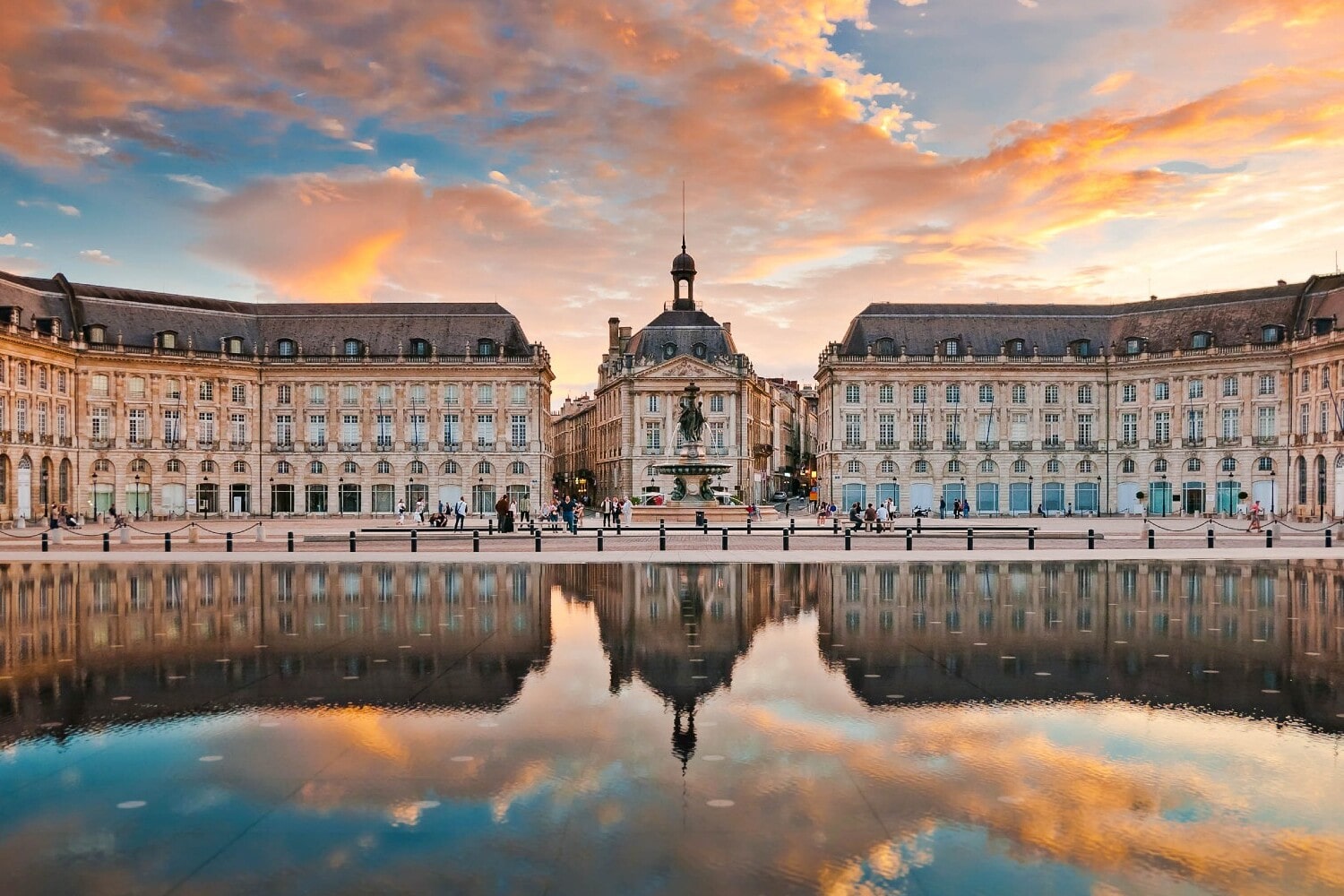Bordeaux is not only the world capital of wine but also a city with a rich history, refined architecture and a distinctive atmosphere. Located in the southwest of France, it attracts tourists from around the world with its cultural heritage, cuisine and picturesque views. Bordeaux blends tradition with modernity, offering visitors a unique experience at every turn. It is a city full of stories, elegance and vitality that goes far beyond its famous vineyards. Below are interesting and educational facts about Bordeaux that you might not know.
- Bordeaux is considered the wine capital of the world, with winemaking traditions dating back over two thousand years. The region has more than seven thousand vineyards that produce around nine hundred million bottles of wine annually. Some of the most expensive wines in the world come from Bordeaux, as well as affordable everyday varieties. Wine is an integral part of the city’s culture and economy.
- One of the world’s largest wine museums, Cité du Vin, is located in Bordeaux. This modern cultural center is dedicated to the global history of winemaking. Its architecture is inspired by the shape of a wine glass or a swirling vine. Visitors can enjoy interactive exhibits and explore wine cultures from across the globe.
- The historic center of Bordeaux is listed as a UNESCO World Heritage Site as a prime example of 18th-century urban planning. It is the largest urban area in France to receive this status. The streets are known for their elegant limestone facades and grand townhouses. Bordeaux is often compared to Paris in style but has far fewer tourists.
- The city lies on the Garonne River, which adds charm and serves as an important transportation route. The riverbanks are lined with parks, restaurants and museums, making them popular for walks and leisure. In the evening, the riverfront becomes particularly romantic with illuminated bridges and buildings. Historically, the Garonne was part of vital trade routes.
- Place de la Bourse is one of France’s most iconic squares and a symbol of Bordeaux’s classical beauty. Across from it is the Miroir d’eau, the largest reflective water surface in the world. It has become a favorite spot for photographers, children and tourists. The water creates a stunning mirror effect of the square’s historic architecture.
- Bordeaux is home to one of the oldest shopping streets in Europe — Rue Sainte-Catherine, which is over 1.2 kilometers long. It is a pedestrian street filled with boutiques, shops and cafes. The street runs through the heart of the city and bustles with activity throughout the day. It is a lively and vibrant symbol of Bordeaux.
- The Grand Théâtre of Bordeaux is a magnificent opera house built in the 18th century. Its colonnaded facade makes it one of the most beautiful theatres in France. The interior impresses with luxury, decoration and outstanding acoustics. It regularly hosts operas, concerts and cultural festivals.
- Bordeaux has become an innovative hub thanks to its digital projects and urban renewal efforts. The city promotes eco-friendly public transport, including fully automated electric trams. Public spaces are being redesigned into places for rest and social interaction. Local authorities prioritize sustainable and comfortable urban living.
- Each year, Bordeaux hosts Bordeaux Fête le Vin, a large wine festival that attracts tens of thousands of visitors. The event includes tastings, live music, workshops and cultural programs. It lasts for several days along the Garonne riverfront. The festival has become an international symbol of the city and a favorite event for wine lovers.
- Besides wine, Bordeaux is known for its rich gastronomy, including seafood, foie gras, truffles and desserts like canelé. Canelé is a small caramelized pastry flavored with rum and vanilla that has become a culinary icon of the city. It is available in bakeries throughout Bordeaux. The local cuisine is deeply connected to the lifestyle of its residents.
- Bordeaux has a well-developed cycling infrastructure with over seven hundred kilometers of bike lanes. The city encourages the use of bicycles as a main mode of transport. The Vélo Bordeaux system makes it easy to rent bikes in almost every neighborhood. This makes Bordeaux friendly for both environmentally conscious locals and tourists.
- Bordeaux is a university city, home to several higher education institutions, including the University of Bordeaux. The university has centuries of history and more than fifty thousand students from around the world. Academic life contributes to the development of science, culture and international cooperation. The presence of youth brings dynamism and energy to the city.
These fascinating facts about Bordeaux prove that it is far more than just a wine capital. The city combines deep historical roots with modern progress and European elegance. Bordeaux inspires with its architecture, culture, cuisine and commitment to innovation. Visiting this city means diving into the heart of southwestern France.





